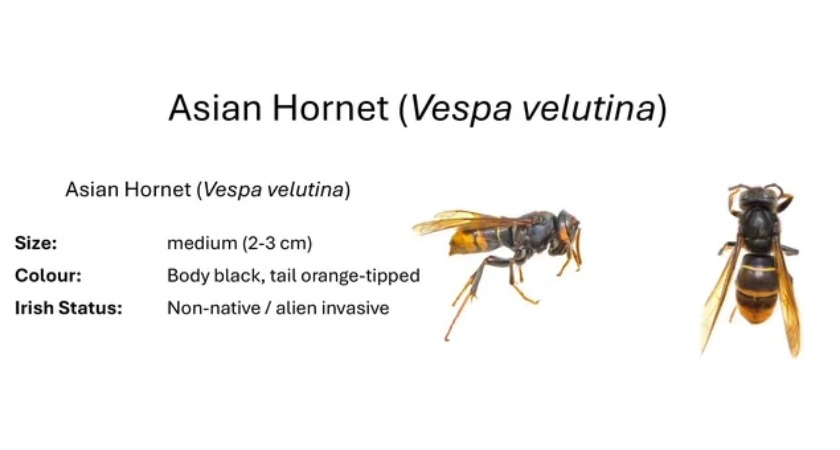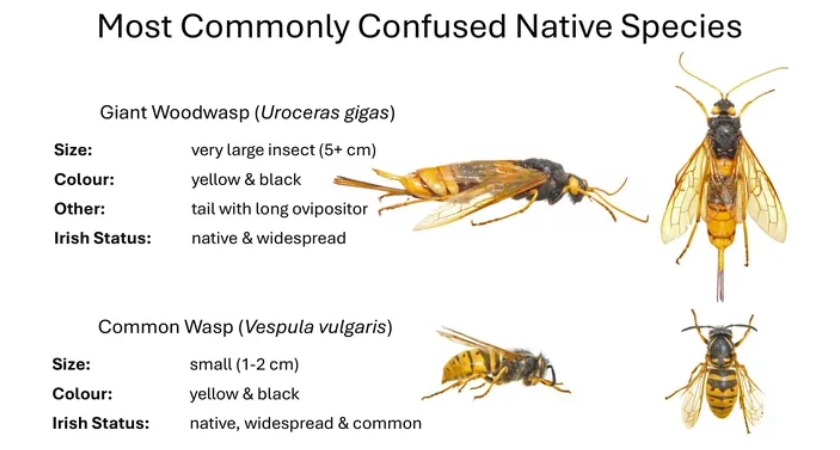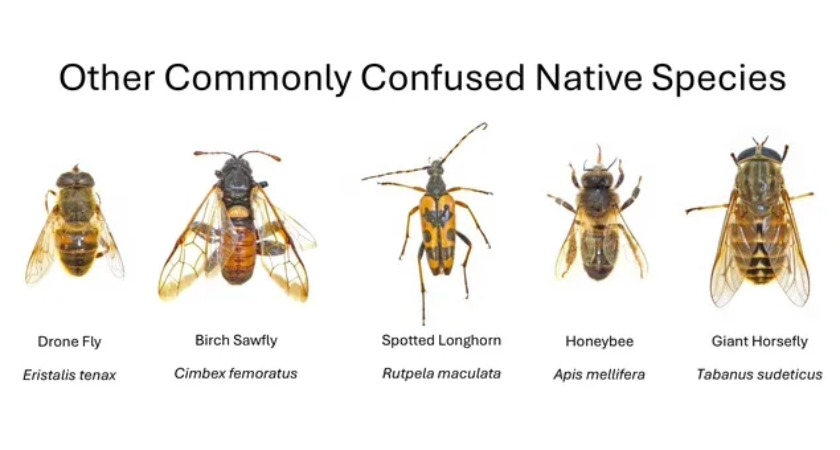A CONFIRMED sighting of an Asian Hornet in Cork has sparked a biosecurity alert from the Irish Government.
The hornet, native to Southeast Asia, has spread through continental Europe and poses a major ecological risk, with a single nest able to devastate local honeybee populations.
Ireland has remained largely free from the invasive species, however, the sighting has led the government to establish a new task force, the Asian Hornet Management Group.
While the species is a threat to Ireland's biodiversity, the discovery does not pose a significant public health risk.
"Asian Hornets are a threat to our native pollinators and our biodiversity. We must take even a single sighting very seriously," said Christopher O'Sullivan, Minister of State for Nature, Heritage and Biodiversity.
Sighting
The sighting was reported to the National Biodiversity Data Centre's website by a member of the public.
A photograph was included, which was confirmed as an Asian Hornet by entomologists at both the National Museum of Ireland and National Parks and Wildlife Service (NPWS), triggering a rapid response protocol.
A survey team was quickly deployed and extensive monitoring and surveying conducted.
No evidence of a hornet nest or any other hornet activity was initially observed, however, subsequent surveillance led to the trapping of an Asian Hornet on Tuesday, August 12.
The NPWS and the National Biodiversity Data Centre are working in partnership with the Northern Ireland Environment Agency to address the threat.
Extensive monitoring will continue over the coming weeks to determine if this is one individual or if there is evidence of a larger population.
The sighting is the second verified identification of an Asian Hornet in Ireland after one was spotted in Dublin in 2021, which was not associated with a wild viable population.
'Early detection is key'
Mr O'Sullivan encouraged members of the public to act as the task force's 'eyes on the ground' to monitor the situation.
"One individual was captured and a co-ordinated response is now underway through a new cross government task force who will continue to monitor the situation," he said.
"We are also very grateful for the support of beekeepers and their associations in this endeavour.
"This incident shows us that members of the public are our eyes on the ground.
"Early detection is key if we are to prevent the establishment of this invasive species.
"I urge everyone to be vigilant and inform themselves so that they can recognise and report any sightings of the Asian Hornet to help us contain this invasive species and protect our biodiversity."
If you suspect you have spotted an Asian Hornet, do not attempt to disturb or capture it.
While not generally aggressive, it may sting if provoked.
Any photographs, location coordinates, or samples (if safe to collect post-mortem) are extremely valuable to the response team.
Sightings, including a photograph if possible, can be reported through the National Biodiversity Data Centre's reporting portal by clicking here.
It is important to note that Asian Hornets can be easily confused with native species such as the giant woodwasp, the dark giant horsefly and the common wasp.




